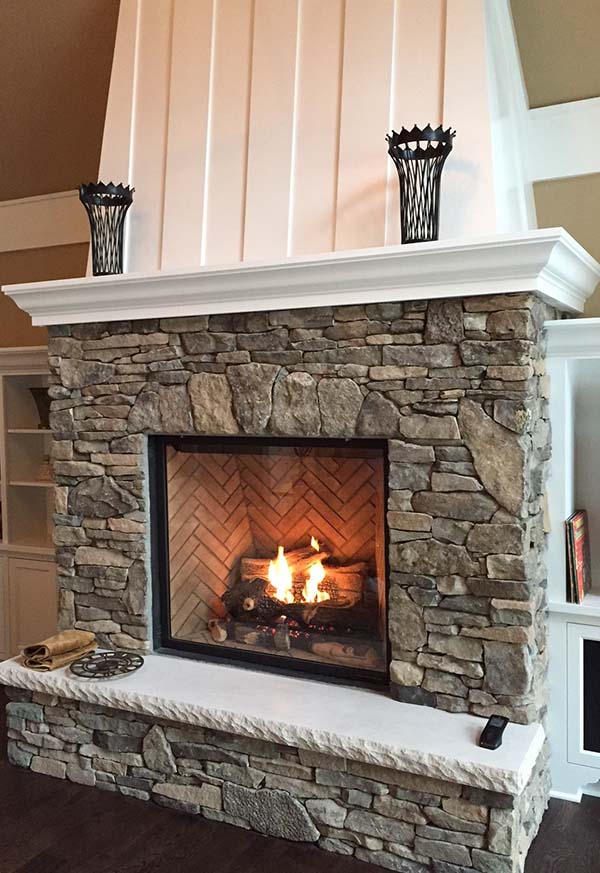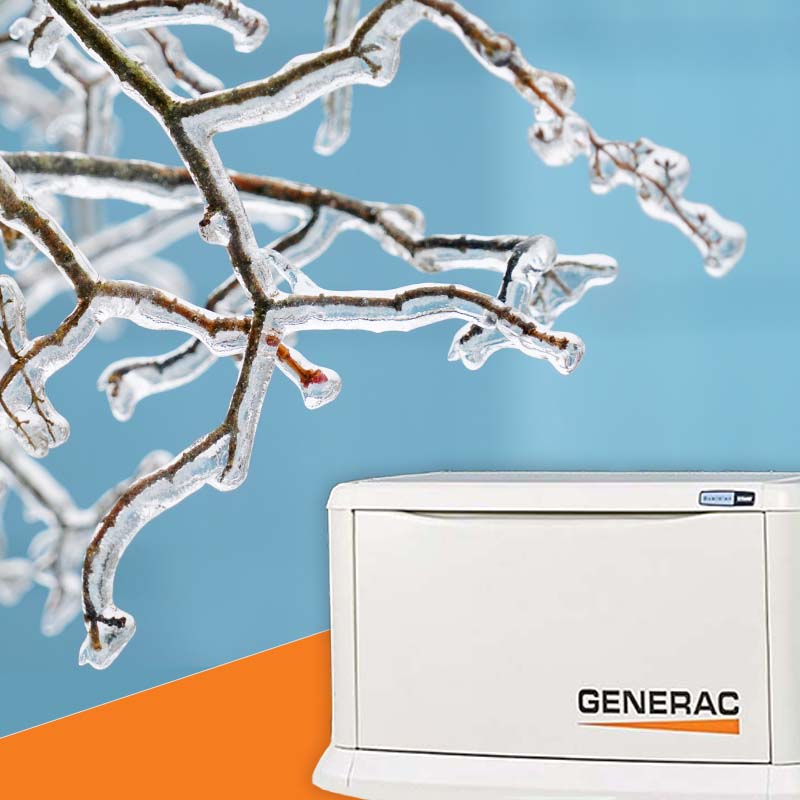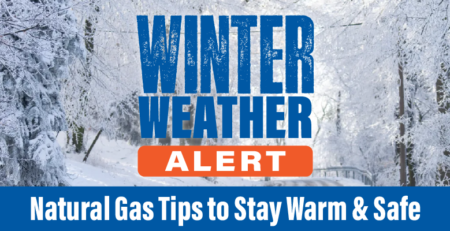Winter Weather Advisory
Winter Storms and Natural Gas
Winter weather is on the way and with an impending forecast of sleet, ice and snow, you might be concerned about power outages and how your natural gas appliances might be affected.
Natural gas is piped underground to your home and is rarely affected by storms. Many gas appliances will work even when the power does not. That means you may be able to cook on your gas stove top, grill a steak on your gas grill and even take a hot shower.

Appliances
Will natural gas appliances function during an outage?
A traditional storage tank water heater with a standing pilot will continue to heat and distribute water. A tankless water heater operates using an electrical component for ignition, so will not work.
A gas range may or may not ignite depending on whether it needs electricity to spark. Many ranges can be manually lit, but we recommend you follow the manufacturer’s directions. Never attempt to use your gas range to warm your home.
Your gas grill will definitely work, but be safe. Never grill inside your garage or under an overhang, no matter the weather—snow, rain, sleet or wind. Be sure your grill is at least five feet away from all combustible materials and in a well-ventilated area.
A gas furnace will not work since it is a forced air system and needs electricity to power the blower. Want to be sure you stay warm? Install natural gas logs or a gas space heater.
Safety is key during a power outage. Be sure all appliance vents are clear of any obstructions so they continue to exhaust properly. And, when building a snowman, don’t push or pile snow around your gas meter. For more on gas safety during extreme weather, click here.
The Advantages of a Natural Gas Generator
Power outages are unpredictable and can happen any time, any season, but in the south, winter weather often turns icy leaving millions of families without power for days or weeks. A whole home standby generator permanently connects to your natural gas and electrical systems starting automatically within seconds of a power failure. Once power is restored the generator shuts off.
If you’re considering a standby generator, contact our trusted partner Canter Power Systems, serving families in the southeast since 1948.
To get started call the line dedicated for YCNGA customers 866-699-8283
Cut the Chill.. and the Bill
Gas logs will operate during a power outage and keep the room warm and toasty. They are also an efficient way to quickly cut the chill for pennies per hour.
Natural gas is priced by the therm with current residential rates under $1.20 per therm, and measured in BTUs (British Thermal Units – a standard measurement of the amount of energy contained in any fuel that is released per hour when it is burned).
A typical gas log set has a 32,000 BTU burner so consumes 32,000 BTUs of gas per hour. Since gas logs are 99% efficient they also emit approximately 32,000 BTU’s of heat at a cost of only $.38c per hour.

Safety
NATURAL GAS SAFETY
During & After the Storm…
Gas pipelines are buried underground and are not often affected by wind, rain, snow or sleet. The results of severe weather, however, could damage your appliances or affect your gas supply. Trees that fall may pull up utilities caught in their roots, or damage outdoor appliances or fixtures including your gas meter. Downed trees on houses can also damage interior (customer-owned) gas piping.
Before the Storm
Natural gas lines require you to take no special precautions. There is no need to turn off your gas meter.
During the Storm
Many natural gas appliances that have a standing pilot will continue to operate safely without electricity. Some may require that you manually light the product, and this should be done according to the appliance manufacturer’s instructions.
After the Storm
If you have any resulting storm damage, check natural gas appliances for possible damage or leaks. If you smell a strong sulfur odor (like rotten eggs or a burnt match), leave immediately and call 911 and YCNGA at 866- 201-1001. If no smell is present, operation of natural gas appliances should be safe. If a natural gas generator was in use for several days, the oil should be checked, and changed, if necessary.
In the unlikely event your natural gas service is interrupted, please do not attempt to turn your natural gas back on. Instead, call us at (803) 323-5304 during normal working hours (8am-5pm) or call the after-hours line at 866-201-1001.
Do not operate any natural gas appliances that you suspect have been flooded or damaged. If you need help relighting pilot lights, or would like to make sure that your appliances are in proper working condition, call us at (803) 323-5304, or call a qualified heating or plumbing contractor for assistance.
Call 811 Before Clean-Up
After severe weather your yard may sustain damage from fallen trees. During clean-up and repair, avoid damaging underground utilities by calling SC811 toll free at 888-721-7877 before digging. Do not remove fallen trees or do any digging without first calling SC811 to locate your utility lines. Tree roots could be growing near natural gas pipes or other utility lines.
From a cell phone in York County call 888-721-7877 to be sure you reach SC811 and not NC.







